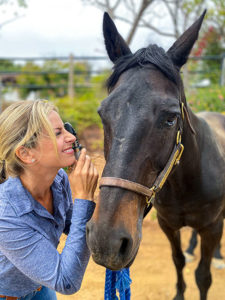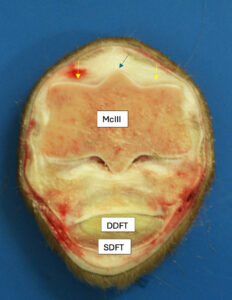EHV Outbreak in England Unusual; Some Cases Could be EHV-4
“It’s very unusual to get EHV-1 outbreaks all at the same time on different premises,” said James Wood, BSc, BVetMed, MSc, PhD, MRCVS, DLSHTM, Dipl. ECVPH, head of epidemiology at the Animal Health Trust (AHT) in the United Kingdom, about the recent flare-up of neurologic equine herpesvirus-1 cases in his country. At least 12 U.K. horses have been euthanized after infection with the
- Topics: Article
“It’s very unusual to get EHV-1 outbreaks all at the same time on different premises,” said James Wood, BSc, BVetMed, MSc, PhD, MRCVS, DLSHTM, Dipl. ECVPH, head of epidemiology at the Animal Health Trust (AHT) in the United Kingdom, about the recent flare-up of neurologic equine herpesvirus-1 cases in his country. At least 12 U.K. horses have been euthanized after infection with the debilitating virus.
Asymptomatic horses (those not showing clinical signs even though they have the virus) stabled with infected animals and those on bordering farms have been screened for EHV, often yielding positives. But according to Wood, these incidental cases of herpesvirus detected via blood tests could be another, less threatening, respiratory form of herpesvirus–EHV-4.
“Just in blood samples, it’s impossible to distinguish between neurologic and respiratory strains,” explained Wood. “It is difficult to differentiate and be sure, and (the blood test) is not 100% reliable because the viruses are so closely related.”
He said EHV-4 constantly circulates in the equine population, and many farms that might think they’ve never experienced the virus probably have, but they just haven’t specifically looked for it
Create a free account with TheHorse.com to view this content.
TheHorse.com is home to thousands of free articles about horse health care. In order to access some of our exclusive free content, you must be signed into TheHorse.com.
Start your free account today!
Already have an account?
and continue reading.

Related Articles
Stay on top of the most recent Horse Health news with


















